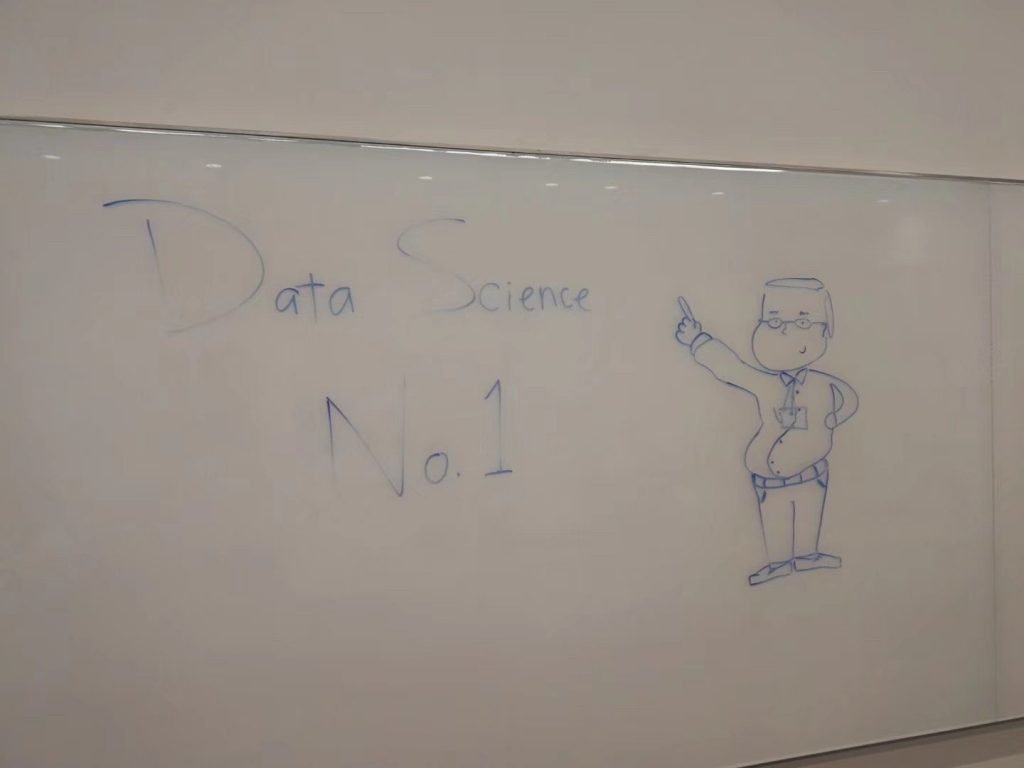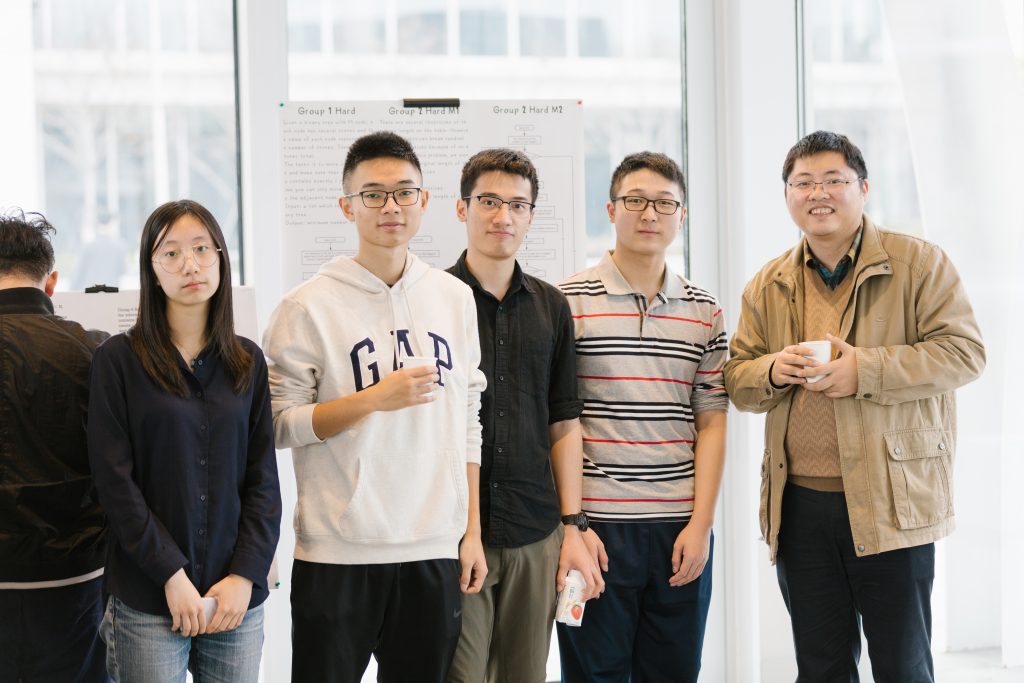By Mengyu Ma*
When I was taking Linear Algebra and Differential Equations in my undergraduate school, I had to prepare for quizzes every Monday and Wednesday evening for each course. I needed to review everything we had learned last week, and it always took me around 2 hours. As a third-year student, I was overwhelmed and frustrated at first. A group of freshmen from Duke Kunshan University (DKU) had the same experience when they started to explore the world of data science. Even worse, in their first 7-week academic session, they faced 4 quizzes each week.

Ming Li, Ph.D. is an associate professor of Electrical and Computer Engineering at DKU. He employed “frequent quizzing” as one of his pedagogies when he taught Fall 2018 STATS 102 Introduction to Data Science. To achieve his teaching philosophy of “learning by doing” and to ensure students’ automatized knowledge retrieving, James M. Lang’s (2016) Small Teaching inspired Dr. Li to design his regular class starting with a 15-minute coding quiz. Working for the Center for Teaching and Learning (CTL) at DKU, the change of my perspective makes me realize the effectiveness of frequent quizzing.
Learn by Doing: A High Level of Retrieving
To help students build a strong foundation of data science in such a fast-paced environment, Dr. Li quizzes students every class before his lecture. The quizzes test students’ understanding and application of the concept they learned in the previous class, so careful in-class attention and after-class review are both required. Cognitively, human have difficulty retrieving knowledge from long-term memory (Miller 2011, p.119). Quickly and accurately drawing the knowledge we need when we need it is a challenge for memory capacity, which reflects the level of comprehension (Lang 2016, p.35). However, plug-and-chug retrieving is prevented in Dr. Li’s quizzes because each question forces students to actually DO something. “The result-driven quiz allows students to make use of any resources they can reach but they have to give me the expected outcome within a short time”, Dr. Li stressed. Students absorb the knowledge if they can process and produce beautiful and error-free code. Although in-class quizzing occupies lecture time, it provides a perfect space for students to try things out.
Mental Process Can Become Automatized
To my surprise, students felt OK regarding the frequent quizzes. They just argued about the time limit. However, Dr. Li explained that a time limit is a key point to cultivate their ability to automatized knowledge. “The process of combining mental inputs in new ways occurs in our working memory – which, unfortunately, have the limited capacity” (Lang 2016, p.119). When we need to process several cognitive tasks, automatized knowledge will free up space for us to deal with other tasks. Thus, the time-limited quiz helps students automatize their knowledge and prepare for more complicated tasks in the future. Professor Li also mentioned that he sets up the time (15 minutes) based on the criteria that big companies (such as Google) use to test candidates. He equips students with the skills that may lead to their career success.
Lang (2016) pointed out that practice could enable students to automatize what they have learned, which matches how Dr. Li defines frequent quizzing. He regards the quizzing as a combination of assessment and practice. Since students have opportunities and time to perfect their after-class assignment, in-class quizzes visualize the subtle difference among students who earn different letter grades. But generally, in the long run, once students automatize knowledge, they would be able to think more effectively and creatively as they productively process information and add on their own ideas (Lang 2016, p.120). In this case, frequent quizzing enhances knowledge retention and encourages outside classroom application.
Immediate Feedback Has to Be Guaranteed
However, the most significant element of implementing frequent quizzing in class is to provide immediate feedback. They developed a platform for their course purpose with the help of nbgrader (a tool that facilitates creating and grading assignments in the Jupyter notebook). Based on the source code, Dr. Li designed a class-wide website for students to complete assignments and quizzes. The best feature of their platform is that feedback will be provided once students submit the quiz. So, after the quizzing time, Dr. Li would briefly go over the quiz question based on the stats generated by the system. Students would figure out their mistakes or misunderstandings right after the quiz. Immediate feedback is the prerequisite of frequent quizzing, especially for everyday quizzing.

After the conversations with Dr. Li and his students, I could see how powerful frequent quizzing is and how concrete pedagogical support is. When I got used to the pace of two quizzes each week in my undergraduate school, I gradually knew it was facilitating my learning, especially near the final week. I always had a deeper understanding of the knowledge that had been tested in the quizzes, which eased my burden and freed me up for other materials. Dr. Li’s students also agreed on the effectiveness of frequent quizzing. One of his students even told me that it is enough for him to redo the quizzes for final review.
If immediate feedback could be guaranteed, frequent quizzing might be helpful for some subjects, especially natural science. The pedagogy behind it equips students with hands-on skills. An in-class quiz might be more effective than a normal lecture because it directly requires students to learn by doing and automatize knowledge. Students might feel pressure at first, but when they realize the purpose is to enhance the learning process, they would get used to it. Frequent quizzing is not just for assessment, but for preparing students for future success in the real world.
References
Miller, M. (2011). What College Teachers Should Know about Memory: A Perspective from Cognitive Psychology. College Teaching. 59, 117-122
Lang, J. (2016). Small Teaching. San Francisco, CA: Jossey-Bassnbgrader
https://nbgrader.readthedocs.io/en/stable/
*About the Author
Mengyu Ma, currently an M.A. student at Teachers College, Columbia University. She is doing summer internship for Center for Teaching and Learning (CTL) at Duke Kunshan University (DKU). Majoring in TESOL (Teaching of English to Speakers of Other Languages), she dedicated her knowledge of pedagogy and teaching practices into teaching and learning facilitation at DKU. With her great interests in higher education, instructional technology, active learning, and curriculum design, she contributed to promote effective teaching skills, assisted workshops and one-on-one consultations.
More to Say…
DKU CTL offers Students Group Instructional Feedback (SGIF) for faculty to obtain students’ feedback on teaching effectiveness and learning facilitation. Dr. Ming Li is an active participant of SGIF, which is how he learned about his students’ frustration with his frequent quizzing. Based on the suggestions provided by CTL, he re-explained his teaching philosophy and purpose of frequent quizzing with some scientific and theoretical evidence to his students. Gradually, students realized that the quizzes enhanced coding practices and contributed to their deep learning. From the end-of-course evaluation and the conversations that happened one year after they took the course, we learned that students loved quizzing and had built a strong foundation of data science.

